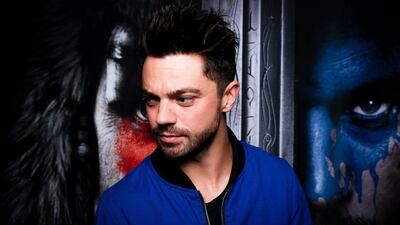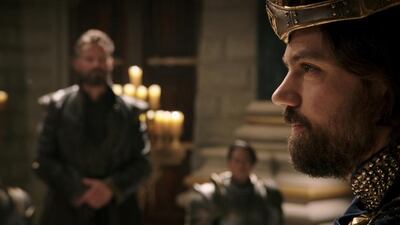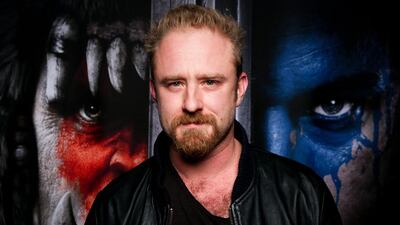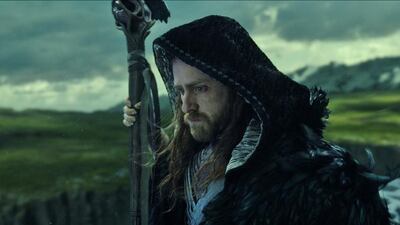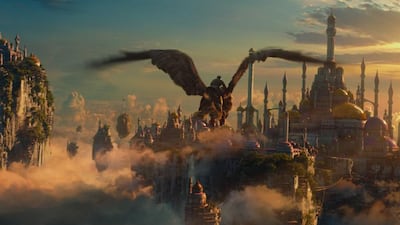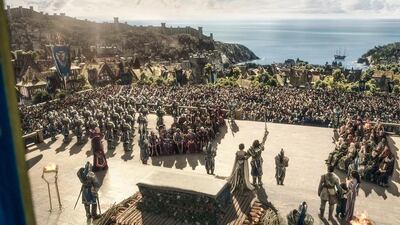While it has become the accepted wisdom in Hollywood that video games don't make good movies, director Duncan Jones aims to obliterate that perception once and for all with his big-screen adaptation of Warcraft.
Inspired by World of Warcraft, the hugely popular MMORPG (massively multiplayer online role-playing game), the film is a fantasy drama set in the game's fictional land of Azeroth, where humans are at odds with a race of invading orcs.
Launched in 2004, World of Warcraft is more than a game for some – it's a way of life. With more than nine million subscribers, players traverse a vast digital landscape, slaying monsters and forging friendships. With Blizzard, the company behind the game, heavily involved in the film, Jones (son of the late rock star David Bowie) has crafted a world in which the orcs are as well-developed characters as the humans.
“This story was very compelling in itself,” says British-born actor Dominic Cooper, who plays King Llane Wrynn. “It has a lot of questioning aspects, even towards the world we live in now. It’s about domination of lands and who is right. Who do those lands belong to? Who do we believe to be our heroes? Who is good and evil? For me, it wasn’t just a computer game about orcs being put on the big screen.”
While most previous video-game adaptations have flopped, Warcraft attracted high-calibre stars, including Ben Foster, recently seen on screen as disgraced cyclist Lance Armstrong in The Program.
“I didn’t know a whole lot about gaming,” he says. “I’ve certainly never been a gamer – but when somebody says, ‘Would you like to be a wizard?’ there are only two answers – yes and yes.”
Foster plays Medivh, a spell-casting mage. The cast also includes Travis Fimmel as Sir Anduin Lothar, the film's human hero, and Paula Patton, who plays Garona Halforcen, a half-human, half-orc caught between both sides. The big question is how will the game's millions of fans react to the film? With Jones, director of highly-regarded sci-fi drama Moon, at the helm, hopes are high that it will lure players away from their computers to the cinematic realisation of the world.
“These [players] are entering an environment that’s interactive, that they’re creating – they’re almost the directors of their own film in a way,” says Cooper. “So for someone to be prepared to part with their money and go to the cinema, it has to be very, very special.”
If anything looks set to separate Warcraft from other video-game adaptations, it is the groundbreaking motion-capture work, through which actors, strapped with sensors, are turned into digital creatures.
“Some of what they’ve done with animation ... it’s the next level – I’ve never seen anything like it,” says Foster.
“They’re able to track eyes now, for the motion-capture stuff. They’re tracking an actor’s performance through the eyes. These are living performances through all shapes and sizes. It’s staggering work, what Duncan has done.”
Cooper agrees, admitting he was nervous at first about joining a production with such a reliance on special effects.
“Of course the creatures they’re trying to create in that environment are becoming more spectacular and believable in terms of their motion and movement,” he says. “But actually what they seem to be focusing on – which is a great relief – is making this look real, which means you’re dealing with human expressions. You can see the actors that are playing them.”
• Warcraft is in cinemas now
artslife@thenational.ae
